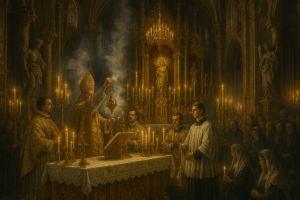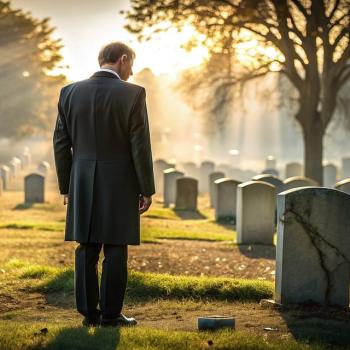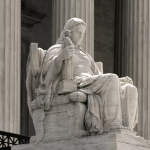Pope Leo XIV recently delivered an address expressing appreciation for the Eastern Catholic churches. I think that the Pope was talking about introspection, reflection and reparation:
“It is likewise important to rediscover, especially in the Christian West, a sense of the primacy of God, the importance of mystagogy and the values so typical of Eastern spirituality: constant intercession, penance, fasting, and weeping for one’s own sins and for those of all humanity (penthos)! It is vital, then, that you preserve your traditions without attenuating them, for the sake perhaps of practicality or convenience, lest they be corrupted by the mentality of consumerism and utilitarianism.”

Some conservative Catholic commentators interpreted the Pope’s remarks as criticisms of contemporary Catholic worship, which some dismiss as “engaging” to the point of banality. To them, the Mass would be less banal and more meaningful if it were less engaging. Less contemporary music, “folksy banter” and handshaking. More “mystery,” pageantry and ritual. And more Latin Mass.
Interestingly, the Pope never mentioned the Latin Mass, except to agree with Pope Leo XIII. (Pope Leo XIII emphasized the importance of preserving and promoting the Eastern Catholic rites.) The Pope reminds us that some Eastern Catholics continue to use Aramaic/Syriac languages. And he certainly knows that many Eastern Catholics use local languages, too, (but NOT Latin.)
So, if the Pope was NOT talking about the Latin Mass, what was he talking about? I think that he was talking about recovering a sense of mystery, possibly even a sense of doubt and humility, too. And, I do NOT think that he meant that we should believe unbelievable things, dismiss science, or introduce more pageantry and ritual. These are superficial, NOT transformational, actions.
I think that the Pope was talking about introspection, reflection and reparation. In the Eastern Orthodox tradition, the word “penthos” is associated with conversion and repentance.
Ultimate Reality is Mysterious Enough
Recently, I visited a traditional Catholic church for the first time in a long time to attend a relative’s funeral. Although there is some beauty in the pageantry, there is also a real sense of separation. The imposing architecture; the elevated altar; the candles, incense, stained glass, and statuary; the ornate vestments; and the physical separation of the clergy suggest that God is far-removed.
To me, the Latin Mass, pageantry and ritual are more theatrical, but NOT more mysterious. These changes can make the Mass less engaging, but they do NOT make it more meaningful.
Some conservative Christians believe that the church should focus its attention away from the actual, immediate, imperfect “here and now.” Rather, they believe that the church should focus its attention on an imagined, remote, perfect “life after death.” But, many people can hardly imagine a life after death, at least NOT until after they have paid their bills in the here and now.
To me, Ultimate Reality is mysterious enough, without adding superfluous “mystery.” We can employ positive theology to describe God, but that does NOT mean that our speculation is correct or that we have resolved any of the inherent mysteries of Ultimate Reality. In my opinion, churches can best help believers to wrestle with doubt when they can admit doubt themselves.
I wrote about certainty and doubt here.
Introspection, Reflection and Restoration
During his 26-year term, Pope John Paul II apologized for past sins of Christians, including their actions during the abuse scandal, colonization, the Crusades, the Holocaust and the slave trade. This type of introspection, reflection and restoration is healthy. Still, some of these apologies occurred hundreds of years after the events in question.
Often, I say that the churches have done us a disservice by oversimplifying ethical and theological questions and by pretending that the Bible or the church have all of the answers. Increasingly, science is undermining the literal interpretation of our religious myths. When (not if) the church realizes more errors in the future, will it take 500 years to address its shortcomings?
I think that the Pope was talking about introspection, reflection and reparation. Accepting mystery, acknowledging doubt and projecting humility are aspects of a meaningful spiritual life.












